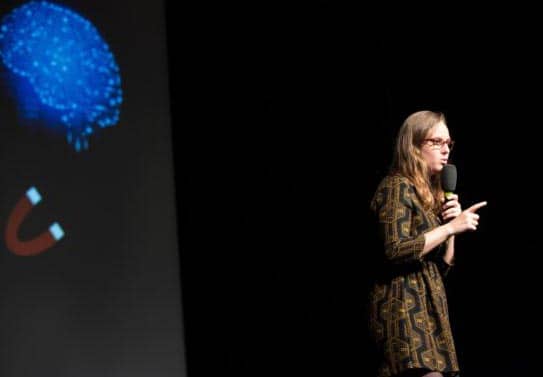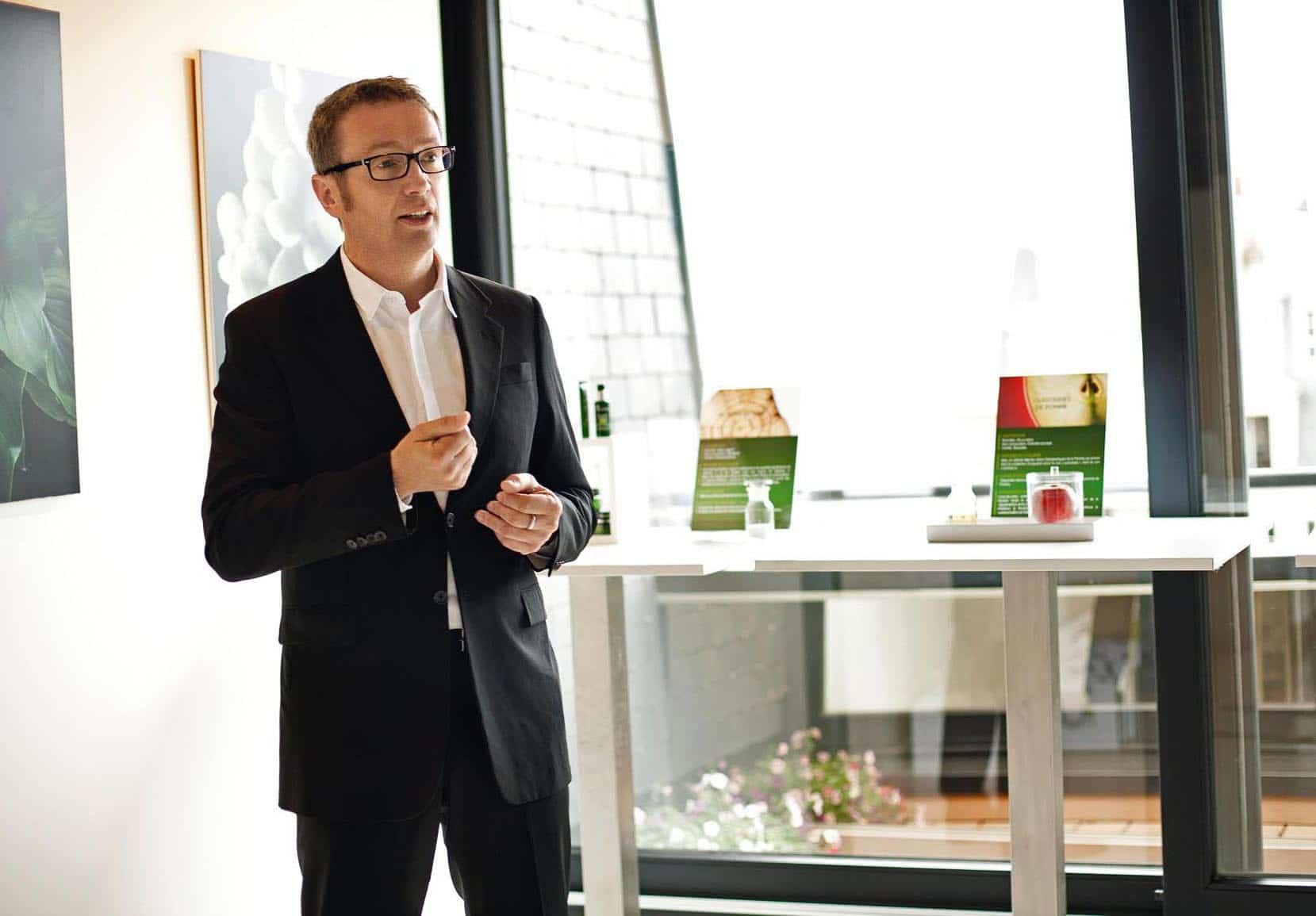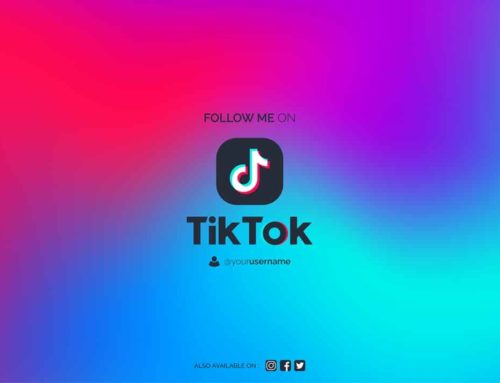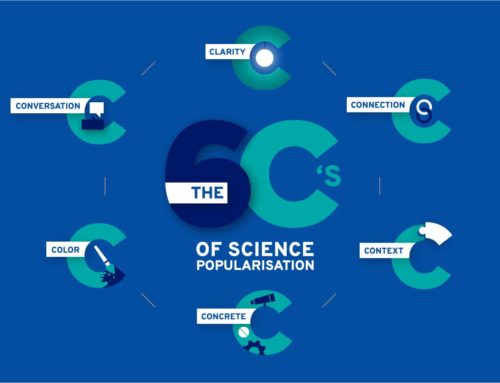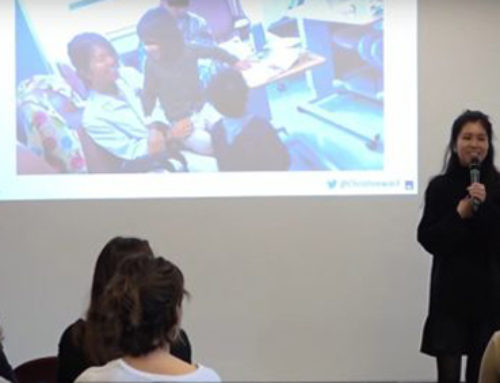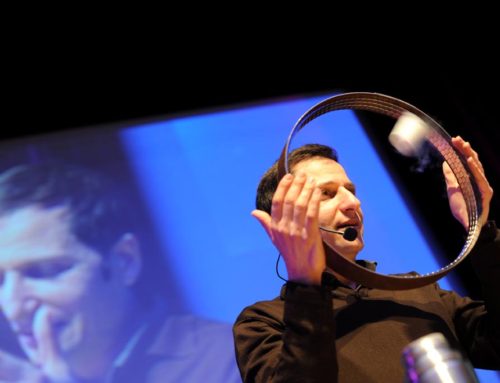Presenting your
thesis in 3 minutes
During the ‘my thesis in 3 minutes’ competition, Agent Majeur trained the PhD students of the Paris-Saclay Campus in science communication. Our mission: to help them popularise and summarise their research in under 3 minutes. 4 PhD students share the lessons they learned from their three minute thesis experience below.
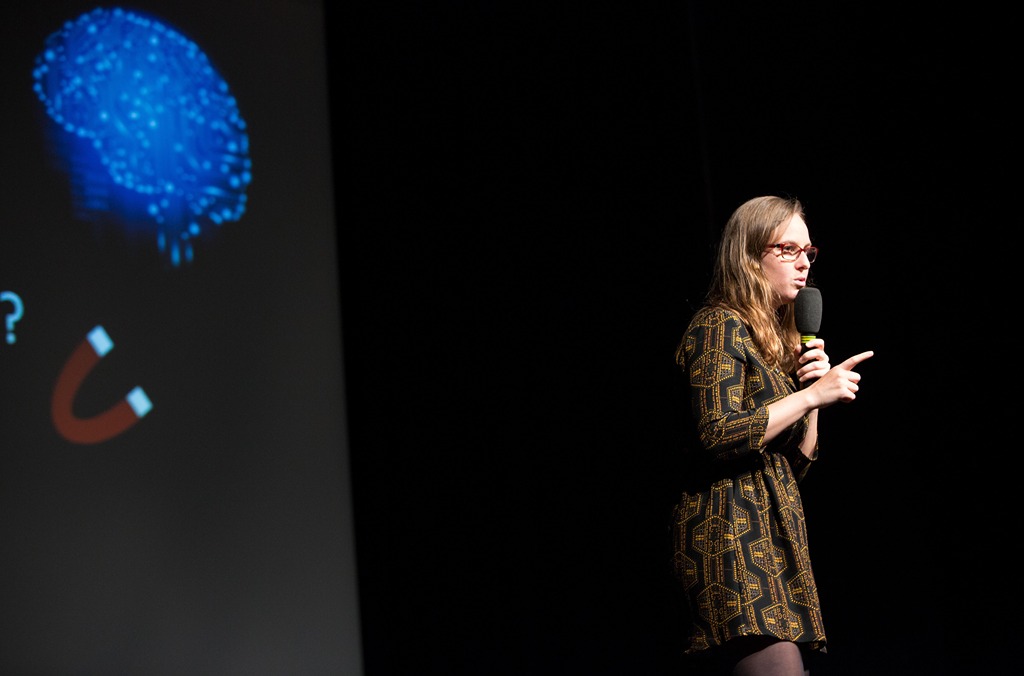
© Jérémy Barande / Ecole Polytechnique
Agent Majeur: How did you prepare for this exercise?
Alice Mizrahi: First we recieved from a half-day training course as a large group, in an amphitheater. Later, we were trained in groups of 5 PhD students.
Benjamin Vest: This exercise requires a lot of personal work. I started by identifying the scientific concepts that seemed the most interesting and original in my thesis. From there, I wrote my pitch down to the last comma. I then reworked on each turn of phrase orally in order to make the whole speech more spontaneous, fluid and natural.
Aliénor Togonal: Personally, I looked on the Internet at similar exercises that had been done before, such as the videos of the ‘Three Minute Thesis’ 2013 final in Québec.
What were the selection criteria?
Charles Cernay: Both the form and the content of our presentations.
BV: The first criterion was the candidate’s implication: their energy and capacity to transfer their passion to the audience. The second one was about the notion of science outreach, the capacity to deliver sufficiently rich and yet understandable science content. At the end we were evaluated on non-verbal communication criteria such as stage presence, diction and gesture.
AM: I think that, despite these official criteria, what was really valued was creating a special feeling the capacity to catch the audience’s attention.
AT: By the way, the audience and the jury particularly appreciated the candidates who managed to make them laugh.
What difficulties did you face?
CC: Summarising a thesis in 3 minutes is very challenging. The first difficulty is to choose your message. To do this I had to step back and make some choices.
BV: It is not that easy to balance objectives of science outreach and quality of scientific content. But if you want to convey a message, you must reduce it somewhow.
What is important to say when presenting your research subject?
AM: You must explain to the audience why your subject is interesting, why researchers are working on it full time and what they do on a daily basis. All of this remains rather puzzling to the general public.
CC: Indeed, we must explain the why and the how of a thesis, and show the interaction between both questions.
AT: But we need to watch out not to get lost in the details, especially for this kind of exercise.
BV: In a word, there is no need to make the audience feel like you must study for 5, 6 or 7 years to get there!
What do you recommend for the structure of the presentation?
AT: You should smile from the beginning to the end, be active, seek contact with the audience, and be engaging.
CC: Play on your moves, have moments of silence, create a kind a bit of drama – a bit like in a theatre.
AM: And try not to show your stress. The most important, and the most difficult, is to seem natural and spontaneous even though you know everything by heart.
What advice would you give to someone who would want to present their thesis in 3 minutes?
BV: Generally, I have noticed that the energy you put into it is of paramount importance.
AM: My advice: practise as much as possible, to become more natural and fluid. And do it in front of many different people, because everybody has advice to share and new ideas to suggest.
AT: For my part, I would say: have fun doing it, and take advantage of this opportunity to expose your research to an attentive audience.
CC: One piece of advice: have fun!
Thanks to Benjamin Vest (Ecole Polytechnique), Alice Mizrahi (UPSud), Aliénor Togonal (Ecole Polytechnique) and Charles Cernay (AgroParisTech).
